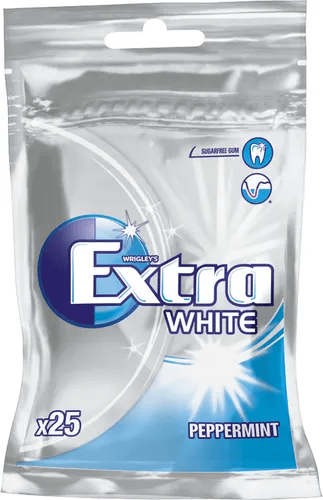Extras Chewing Gum: The good, The bad, And The Chewy
Extra is a brand of sugar-free chewing gum that was launched in 1984 by Wrigley Company. It is designed to last longer than other chewing gums, and to provide lasting freshness and flavor. It has various product lines, such as Extra Classic Bubble, Extra Dessert Delights, Extra Polar Ice, and Extra Refreshers. It is one of the most popular chewing gum brands in the United States1.
But is Extra chewing gum good or bad for you? What are the benefits and drawbacks of chewing this gum? Let’s take a look at some of the pros and cons of Extra chewing gum.
Pros of Extra Chewing Gum
- It can improve oral health. Chewing sugar-free gum like Extra can help clean the teeth and remove food particles that may cause plaque and cavities. Chewing gum also stimulates saliva production, which helps neutralize acids and remineralize the enamel. Some Extra gums contain xylitol, a natural sweetener that inhibits the growth of bacteria that cause dental caries.
- It can enhance memory and cognitive performance. Research has shown that chewing gum increases the blood flow to the brain, which delivers more oxygen and glucose to the brain cells. This can improve alertness, attention, and mental processing speed12. A study by researchers at St. Lawrence University found that students who chewed gum during tests performed better than those who did not3.
- It can reduce appetite and calorie intake. A study by researchers at the University of Rhode Island found that chewing gum before meals reduced hunger and snack cravings, and led to lower calorie consumption. Another study by researchers at the University of Liverpool found that chewing gum after meals reduced the desire for sweet and salty snacks.
- It can freshen breath and prevent dry mouth. Bad breath is caused by bacteria that produce volatile sulfur compounds in the mouth. Chewing gum can mask the odor and increase saliva flow, which helps wash away the bacteria. Dry mouth is a condition where the mouth does not produce enough saliva, which can lead to oral discomfort, infections, and tooth decay. Chewing gum can help moisten the mouth and relieve dryness.
Cons of Extra Chewing Gum
- It can cause jaw pain and headaches. Constant gum chewing puts excessive force on your temporomandibular joints, muscles and teeth, which leads to overstress, imbalance and misalignment. This can cause clicking or popping in one or both temporomandibular joints, headaches, jaw pain, and tooth fracture2. People with temporomandibular disorders should avoid gum entirely.
- It can contain controversial ingredients. Some Extra gums contain artificial sweeteners such as aspartame or sorbitol, which may have negative effects on some people. Aspartame is a synthetic compound that has been linked to headaches, mood changes, and allergic reactions in some people. Sorbitol is a sugar alcohol that can cause digestive issues such as bloating, gas, diarrhea, and abdominal pain in some people.
- It can be addictive and habit-forming. Some people may develop a psychological dependence on chewing gum, especially if they use it as a coping mechanism for stress or boredom. Chewing gum can also become a compulsive behavior that interferes with daily activities or social interactions. Some people may experience withdrawal symptoms such as irritability, anxiety, or cravings if they stop chewing gum abruptly.
- It can be harmful to the environment. Chewing gum is not biodegradable, which means it does not break down naturally in the environment. Discarded chewing gum can stick to surfaces such as sidewalks, benches, or clothing, creating an unsightly and unhygienic mess. Chewing gum can also pose a threat to wildlife, especially birds, who may mistake it for food and ingest it.
Conclusion
Extra chewing gum is not just a candy, but a product that has both advantages and disadvantages for your health and well-being. Chewing Extra gum can improve your oral health, memory, appetite control, and breath freshness. However, it can also cause jaw problems, headaches, allergic reactions, digestive issues, addiction, and environmental damage.
Therefore, you should chew Extra gum responsibly and moderately. Follow some basic rules of etiquette and hygiene:
- Choose sugar-free gums with natural or artificial sweeteners that do not harm your teeth or oral bacteria.
- Chew quietly and discreetly, without making noises or blowing bubbles.
- Dispose of used gums properly, in a trash bin or a wrapper.
- Respect the preferences of others who may not like or tolerate chewing gum.
- Enjoy the benefits of chewing gum without compromising your health or happiness.

Comments
Post a Comment